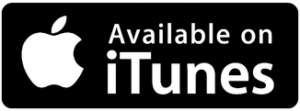Do you struggle with keeping realistic expectations? In this episode of the Maximum Lawyer Podcast, Tyson and Jim share their insights on unbridled optimism and how it relates to the field of law.
In this episode, Jim and Tyson interview Gary Falkowitz, Esq., founder & president of Maximum Intake Consulting and author of the book The Complete Guide to Law Firm Intake. They will go over his career, his firm, the book, and strategies to convert qualified leads into retained clients and maximize marketing campaigns.
Gary is an expert in intake and he has consulted with lots of law firms.
The firm: http://maxintake.com/
The book: https://www.amazon.com/Gary-P-Falkowitz-Esq/e/B07BTGL2GQ
“As I began to investigate law firms, I realized that we as an industry where not putting enough focus or effort into the front end of our business. We were spending a lot of money, we were making a lot of money, but we weren’t maximizing the return on our marketing investments.”
How do you as fast as possible convert a qualified lead into a retained client?
Use e-contracts!
“If you are not using them you are hurting yourself.” In the race of conversion anything that can help you to sign clients faster is a must.
Conversion percentage:
“Say you have 100 leads, and 50 of those qualify for retention (they meet your law firm’s criteria and you want to get that person signing with your law firm). Your conversion percentage is determining how many of those 50 did you ultimately sign.”
Biggest mistakes of the intake process:
Your ability to respond to web leads. How fast are you responding?
“Who is gonna win? The best law firm? Who knows what the best law firm is!? The law firm first to respond is gonna win.”
Follow up.
“Picking a law firm sometimes is not the most important thing going on. That’s why follow up is so important.”
When to stop following up?
“Don’t give up. Keep calling until you hear those words: I am not interested, or I have hired another law firm.”
16:11 - The balance between having an attorney handling the intake vs having staff dedicated to intake.
25:41 - How is it like to work with Gary?
29:57 - Suggestions on questions to ask during a interview.
32:01 - The mindset when evaluating or beginning to evaluate systems.
“Am I maximizing my investments?”
Max Law Con: May 17th and 18th
http://maxlawcon.maximumlawyer.com/
Hacking’s Hack:
Read Gary’s book! The best lawyer book I’ve read win a long time! It is so important to listen to actual lawyers.
Gary's Tip:
Listen to your staff on the phones. If you can’t come up with 5 suggestions to improve those callas, give Gary a call, he will tell you he is sorry and wrong. Lol.
Tyson’s Tip:
Tettra, a wiki for slack teams.
https://tettra.co/
Help your team make better decisions in less time. Tettra is a knowledge management tool for modern teams
//
Thanks so much for listening to the show! If you want to know more about this and keep on maximizing your firm, please join our Facebook Group or like us on Facebook and comment!
You can also go to MaximumLawyer.com or, if you’d prefer, email us at: [email protected]
Do you want to get on the show? Shoot us an email or message us!
The Maximum Lawyer Podcast. Partner up, and maximize your firm.
Guild Membership
Free Access to Stage 1 of Maximum Lawyer in Minimum Time
Sign Up Today!Customer Reviews
4.9 out of 5
Join Our Facebook Group
Enjoy Exclusive Access To Stage One Of The Maximum Lawyer In Minimum Time Course
Privacy Policy
This privacy policy has been compiled to better serve those who are concerned with how their ‘Personally Identifiable Information’ (PII) is being used online. PII, as described in US privacy law and information security, is information that can be used on its own or with other information to identify, contact, or locate a single person, or to identify an individual in context.
Please read our privacy policy carefully to get a clear understanding of how we collect, use, protect or otherwise handle your Personally Identifiable Information in accordance with our website.
What personal information do we collect from the people that visit our blog, website or app?
When ordering or registering on our site, as appropriate, you may be asked to enter your name, email address or other details to help you with your experience.
When do we collect information?
We collect information from you when you register on our site, place an order, subscribe to a newsletter, Use Live Chat, Open a Support Ticket or enter information on our site.
How do we use your information?
We may use the information we collect from you when you register, make a purchase, sign up for our newsletter, respond to a survey or marketing communication, surf the website, or use certain other site features in the following ways:
- To personalize your experience and to allow us to deliver the type of content and product offerings in which you are most interested.
- To improve our website in order to better serve you.
- To allow us to better service you in responding to your customer service requests.
- To quickly process your transactions.
- To send periodic emails regarding your order or other products and services.
- To follow up with them after correspondence (live chat, email or phone inquiries)









